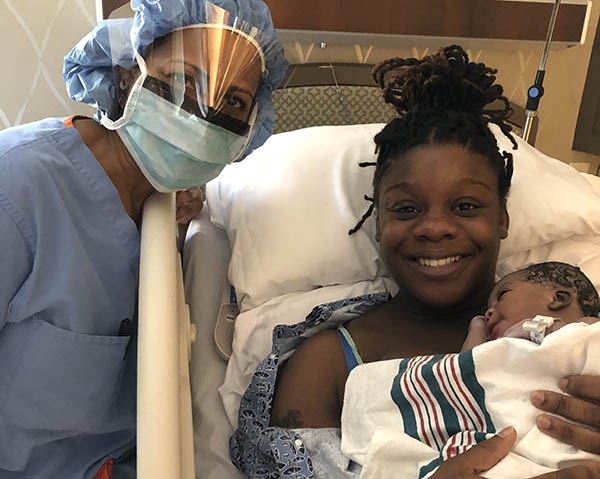Life has been going really well lately. It seems like everything is falling into place. Finally, the relationship with your partner is getting serious. In fact, talk of marriage and kids in the future is occurring more often. As you think about what this really means, you realize that it has also been more than two years since your last annual exam with the obstetrician/gynecologist. You’re excited to meet with your physician and update her about what has been going on in your life, but you’re also nervous. As much as you want to have children in the future, you may also have valid fears and concerns about the possible challenges ahead.

As an African American female, I have been on both sides of the table – as a physician and as a patient. During Black Maternal Health Week 2020 (April 12-18), I want to call attention to the racial disparities in maternal health and encourage minority women in the Richmond community to work with their healthcare providers to achieve better outcomes than our current reality. Every woman deserves the best chance at a healthy pregnancy and childbirth, and we can work together to create a better outlook.
Women of color are at a much higher risk of death during childbirth.
It’s an unacceptable reality that black women are dying in childbirth at a rate 3-4 times higher than other groups of women. Elevated risks of maternal death have also been reported for Native American women and some Asian and Hispanic population subgroups. As alarming as these statistics are, we at VPFW are working hard daily to break down barriers and provide the best care possible for women of color. In addition, I have been working independently with Mocha OB, a group of over 600 female OB/GYNs, family practice physicians, and cardiologists of color to turn the tide toward well-being.
4 Things you can do to improve your maternal and reproductive health
While the medical community is fighting to curtail the risk factors for women of color, it is also important that you become an advocate for your own health. As a team, we can work together to reduce racial and ethnic disparities and improve your maternal health outlook. Here are some ways you can contribute to your own reproductive well-being.
1. Schedule your annual exam and stay up to date on appointments
Early access to healthcare in order to optimize health prior to pregnancy is critical. Come prepared to update your medical and surgical history and family history and to discuss any changes that have occurred since your last visit. If you are transferring care to us, have your records sent.
We will make sure you are up to date with any pertinent screenings and testing available and make recommendations for maintaining a healthy lifestyle.
2. Address existing conditions
If you are considering pregnancy, it is important to diagnose and treat conditions such as hypertension, asthma, diabetes, autoimmune disease, and obesity before you conceive. It is also important to address any concerns about infertility.
If you are not ready for pregnancy, it is equally important to explore and consider your contraceptive options.
3. Prepare to have a conversation with your OB/GYN
We want to talk with you, not at you. Our goal is to create an environment for shared decision-making. We strive to practice evidence-based medicine and will share the relevant risks and benefits of treatment options. We’ll also review treatment alternatives with you.
At the same time, you should feel comfortable sharing any personal information that might impact your decisions regarding treatment so that we can explore any concerns and come up with the right plan of care for you. This kind of authentic conversation is especially important as you begin to establish an environment of trust between yourself and your healthcare team.
Effective communication is a cornerstone to quality care and patient safety. If there is a language barrier, please let us know. We have translators available, and we also have use of a language line if needed.
4. Ask questions and advocate for yourself
Before your appointment, write down any questions you may have. Then, when you see your provider, you can address those questions, discuss concerns, share your fears, and express your desires. If it would help, feel free to bring along a family member or friend to be your second set of ears. Once you leave, also use the decision aids we provide (pamphlets, websites, or brochures) and continue the conversation. We also encourage you to engage and work with doulas, churches, community-based social services, and civic organizations that you trust.
We are committed to improving the maternal and reproductive health of women of color
For women of color who are hoping to start a family, I want to reassure you that VPFW OB/GYNs are deeply and personally committed to improving your chances. We hope the next time you leave an OB/GYN appointment, you feel empowered and supported. Knowing to ask the right questions to get the most out of your visits is the first step in improving upon the factors of racial health disparities that are modifiable.
While my colleagues and I will continue working to increase quality and safety and addressing implicit bias, we will also work with you to show you how to better your own health. We are excited to partner with you as you move into the next chapter of your unique book of life.
To make an appointment with an OB/GYN provider at one of our Richmond, VA, locations, call VPFW at 804-897-2100 or message us to schedule online.